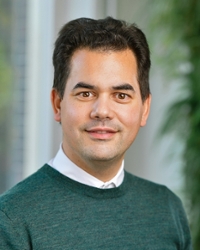Urban Studies Community
Meet our new programme chair: Dr. Miko Flohr
Geplaatst in NewsFlash, Uncategorized, Urban Studies.
Hi Miko. Nice to meet you. Tell us, who are you?
I am Miko Flohr, and I recently started as Programme Chair of Urban Studies. I am also a lecturer in Ancient History at Leiden. My research is in Roman urban archaeology: I study how the Roman Empire in the first centuries CE brought about to urban change – for better, and for worse. I have spent quite a bit of time in places like Pompeii and Ostia, and in the archives. People think that the Roman world had nice, well-organized cities, but it’s a lot more complicated than that.
What is your all-time favorite city and why?
Should I choose just one? What I like about cities is the immense variation, and the ways in which they trick you into feeling both away and at home at the same time. I thought Istanbul is an amazing city, as it is such a mix of old and new, rich and poor, small and large – and still, when you walk through it, it somehow all fits together and makes sense. If I would have to pick just one, however, I would have to pick Naples, because of the way it combines degradation and resilience. It’s a very European city that is totally incomprehensible from a Northwest-European perspective. The noise, the smells, and the chaos and, again, the combination of astonishing wealth and poverty – it’s just endlessly fascinating – and then, there is the food!
I thought Istanbul is an amazing city, as it is such a mix of old and new, rich and poor, small and large – and still, when you walk through it, it somehow all fits together and makes sense. If I would have to pick just one, however, I would have to pick Naples, because of the way it combines degradation and resilience. It’s a very European city that is totally incomprehensible from a Northwest-European perspective. The noise, the smells, and the chaos and, again, the combination of astonishing wealth and poverty – it’s just endlessly fascinating – and then, there is the food!
How did Urban Studies grab your attention, do you have a certain topic that grasps you?
To some extent, it was a coincidence: at some point, I realized that most of the things I was investigating were ‘urban’ – but this had not necessarily be the plan. Yet what I like about urbanity as a theme is the way in which the built environment and the everyday urban processes work together to create urban lives – and how materialized intentions – buildings – often have unintended consequences. You erect a statue to honor a fellow citizen or statesman, and the next thing you know is that people use it as a place to meet – or to hang out.
What fascinates you the most while walking around in a city like the Hague?
The Hague is fascinating in the way it gives me energy. I don’t understand exactly how this works – the city is not particularly pretty, nor is it clean. It is chaotic and noisy. Maybe, it is the fact that The Hague combines being a big, multicultural city with being a seat of government. So on the one hand, you’ll see a lot of big city infrastructure, and an enormous amount of human diversity; on the other hand, there are the ministries, and all the embassies – and the whole process of government, which is very visible and approachable. So, I think The Hague can give you the feeling of really being ‘part of it’. I’ve rarely seen that anywhere else.
How did you develop your interest in the Greco-Roman world?
What fascinates me is that you have this complex civilization of two thousand years ago which on the one hand fundamentally differs from our own world, while at the same time literally every social, economic or cultural issue that we may worry about in 2021 in some way or another was in people’s minds in the Roman world. How can we improve the health of urban people? How can we live together in one community if we have a completely different outlook on what life is and should be? You can even ask the question as to whether Roman cities got themselves into trouble because of overexploitation – not unlike what is happening now with climate change.
Any wisdom you would like to share with us students?
I hesitate to be this middle-aged person to say to students what they should and should not do. When you’re studying, you just need to find out what works for you, and what does not work – and gain a lot of knowledge in the process. Is there anything that I would now do differently than I did back then? Well. Maybe, I would now tell my 19-year old self that it is perfectly fair to take inspiration from your personal background and use that to your advantage – after all, your personal background – class, gender, ethnicity, etc. – has a lot of influence on what you think is important in life. Of course, it should not dictate what you do, but I think for too long, I saw my own ethnic (Indo-Dutch) background and my studies as two different things – whereas in reality, it played a major role in all the decisions I made as an academic…
